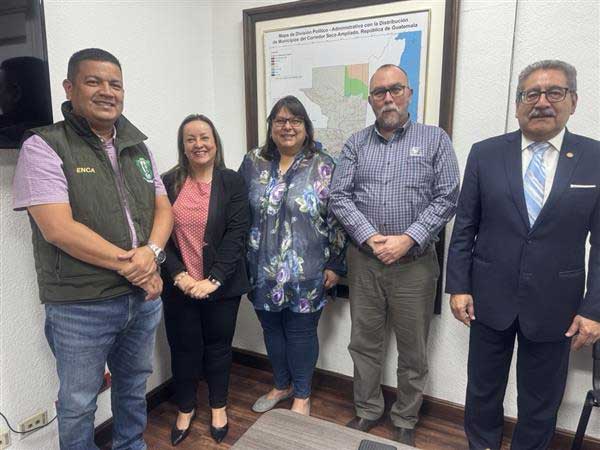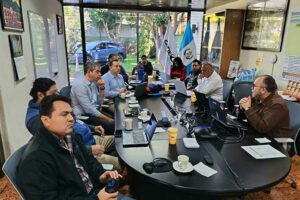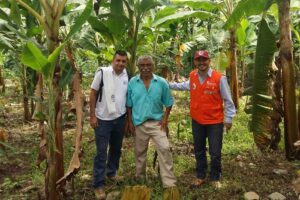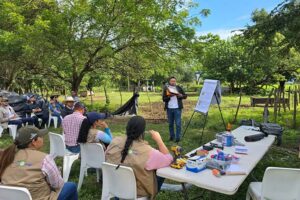CATIE promotes cooperation spaces to strengthen sustainable livestock in Guatemala

- The Center and Guatemalan authorities join efforts to strengthen the country’s sustainable and resilient livestock sector.
With the aim of promoting initiatives that foster sustainable, competitive, and resilient livestock in Guatemala, CATIE (Tropical Agricultural Research and Higher Education Center) held high-level meetings with authorities from the Ministry of Environment and Natural Resources (MARN) and the Ministry of Agriculture, Livestock and Food (MAGA).
These meetings made it possible to identify areas of strategic cooperation to promote joint actions that contribute to the economic and social development of the livestock sector, while at the same time reducing environmental impact and promoting the conservation of natural resources.
Meeting with MAGA
CATIE met with Edwin Castellanos, Vice Minister of Natural Resources and Climate Change, with whom opportunities were explored to implement strategic actions aligned with the country’s environmental policies. Both parties agreed on the importance of working in an integrated manner with MAGA and of continuing the initiatives already being developed in coordination with MARN, thus contributing to the fulfillment of Guatemala’s international commitments on climate change and the reduction of greenhouse gas emissions.
Meeting with MAGA
Likewise, CATIE held a meeting with Mayra Lissette Mota, Vice Minister of Agricultural Health and Regulations, accompanied by Rony Chalí, Director of Cooperation, Projects and Trusts, and Armando Martínez, Senior Office Advisor. During the meeting, actions aimed at strengthening the productivity and sustainability of Guatemalan livestock were discussed, as well as ways to enhance inter-institutional coordination.
Strategic action areas
CATIE is promoting a cooperation agenda based on the following areas:
- Sustainable production: promotion of silvopastoral systems, pasture rotation, rational grazing, use of improved forages, and efficient waste management.
- Natural resource management: sustainable use of water and soil to ensure productivity and biodiversity.
- Animal welfare and health: adequate living conditions, ethical management, disease prevention, and access to veterinary services.
- Economy and competitiveness: improved productivity, market access, and promotion of sustainable livestock products.
- Institutional framework and governance: strengthening of policies, regulations, and inter-institutional coordination.
- Research, development, and technology transfer: innovation and training for producers in sustainable practices.
- Education and capacity building: training of producers, inclusion of content in formal education, and rural extension.
- Monitoring and evaluation: tracking sustainability and productivity indicators, with constant adjustments to ensure impact.
CATIE’s commitment
CATIE reaffirms its commitment to the promotion of sustainable livestock practices that integrate productivity, competitiveness, and environmental conservation, as demonstrated by silvopastoral systems, where trees, forages, and animals coexist to mutual benefit.
With these strategic alliances, the aim is for Guatemala’s livestock sector to move toward a more sustainable, responsible, and climate-resilient model, generating benefits for both producers and the country as a whole.
More information:
Claudia Sepúlveda
Coordinator
Livestock and Environmental Management Unit
CATIE
csepul@catie.ac.cr
Written by:
Gina Samanti Puerto Morazán
Communicator
Communicator
Project Transforming the Honduran Livestock Sector Towards a Low-Carbon Economy (MAF-Ganadería-HN)
CATIE
gina.puerto@catie.ac.cr



